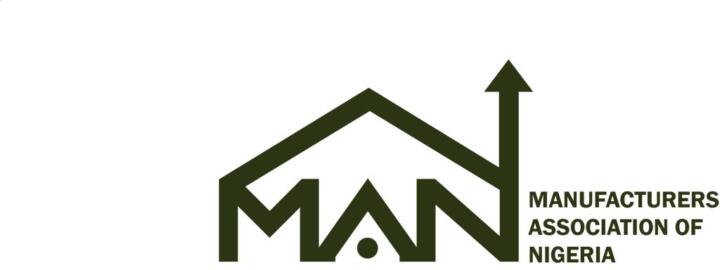The Federal Government and the Manufacturers Association of Nigeria (MAN) have agreed to reinstate and reform the Export Expansion Grant (EEG) as part of broader efforts to revitalise the country’s non-oil export sector. This strategic partnership is expected to strengthen Nigeria’s export competitiveness, diversify revenue streams, and reduce the economy’s overdependence on crude oil earnings.
At a stakeholders’ engagement meeting held in Abuja, the Minister of Industry, Trade and Investment, Dr. Doris Uzoka-Anite, announced that the EEG, which has been a key instrument for promoting non-oil exports, would be revamped to address implementation challenges that had hindered its effectiveness in recent years. The minister emphasised that the government’s new economic blueprint prioritises non-oil growth, industrialisation, and sustainable trade expansion.

She said, “Nigeria cannot continue to rely heavily on oil for foreign exchange. The Export Expansion Grant is being repositioned to encourage more manufacturers, particularly in the agro-processing and value-added sectors, to participate in export activities. We are committed to ensuring transparency, accountability, and efficiency in the administration of the scheme.”
The EEG, first introduced in 1986, was designed to support Nigerian exporters through rebates and incentives, rewarding firms that export non-oil goods by offering grants in the form of negotiable instruments known as Export Credit Certificates (ECCs). These certificates can be used to settle import and excise duties or sold to other businesses. However, the scheme was suspended multiple times due to allegations of abuse, lack of monitoring, and funding constraints.
The Minister revealed that a joint task force, involving the Nigerian Export Promotion Council (NEPC), the Federal Ministry of Finance, and MAN, has been established to ensure that the reintroduced EEG operates effectively. The task force will oversee the disbursement of incentives, monitor export performance, and ensure that beneficiaries comply with established guidelines.
She further noted that the reform will include digital tracking mechanisms to prevent fraud and ensure that only legitimate exporters benefit from the programme. “We are working with the NEPC to digitise the entire process and make it more transparent. Exporters will be able to track their applications, claims, and payments in real-time,” Uzoka-Anite explained.
Speaking at the same event, MAN President, Otunba Francis Meshioye, commended the Federal Government’s decision to revisit the EEG scheme, describing it as a crucial policy tool for driving Nigeria’s non-oil export agenda. He noted that the removal of the EEG in the past had discouraged many manufacturers from venturing into exports, leading to reduced foreign exchange inflows and job losses in export-oriented industries.
Meshioye stated, “We commend the Federal Government for this renewed commitment to the non-oil sector. The EEG is a tested policy that, when properly managed, can boost Nigeria’s competitiveness in global trade. We urge the government to ensure that payments are prompt and the approval process is efficient so that exporters can plan better and remain profitable.”
He added that the association would work closely with the government to identify genuine exporters and eliminate bottlenecks that previously limited access to the grant. According to him, the collaboration aims to restore stakeholders’ confidence in the scheme while ensuring its alignment with the realities of the global market.
Industry experts say the renewed EEG could serve as a catalyst for industrial growth, particularly in agriculture, manufacturing, and services. The scheme is expected to help manufacturers offset high production costs and counterbalance the challenges posed by exchange rate volatility, logistics inefficiencies, and infrastructure deficits.
Dr. Ezra Yakusak, Executive Director of the NEPC, also weighed in on the development, saying that the reintroduction of the EEG aligns with the agency’s target of increasing Nigeria’s non-oil export revenue to $5 billion by 2027. He noted that the NEPC has been working on streamlining the certification process and reducing bureaucracy to enable faster approvals.
“The revival of the EEG will energise exporters and encourage diversification into higher value-added goods. We are already seeing increased interest from industries such as textiles, processed foods, and solid minerals. This is a step in the right direction for economic sustainability,” Yakusak said.
Economists have lauded the move as timely, given Nigeria’s current foreign exchange challenges and the global energy transition that threatens oil revenues. They argue that a robust non-oil export base is vital to achieving macroeconomic stability, generating jobs, and strengthening the naira.
However, they also caution that the success of the EEG will depend on the government’s ability to ensure transparency, curb abuse, and provide consistent funding. Past attempts at implementing the scheme were marred by irregular payments and political interference, which discouraged investors.
A trade policy analyst, Dr. Ayo Olowookere, suggested that the government should link the EEG to performance-based metrics, ensuring that only exporters with verifiable records of shipments and foreign exchange repatriation benefit. He said, “The focus should be on exporters who contribute real value to the economy. Nigeria must avoid a repeat of the mistakes that made the scheme unsustainable in the past.”
The government’s renewed focus on non-oil trade aligns with President Bola Tinubu’s broader economic reform agenda, which seeks to increase industrial productivity, enhance export diversification, and attract foreign investment. The Ministry of Industry, Trade and Investment has also indicated plans to strengthen export infrastructure, improve port operations, and negotiate better trade deals under the African Continental Free Trade Area (AfCFTA).
With the EEG reinstatement, manufacturers and exporters are optimistic that Nigeria could regain its competitiveness in regional and global markets. Stakeholders believe that if properly implemented, the initiative will not only support the manufacturing sector but also help stabilise the nation’s foreign exchange reserves.
As discussions continue between the Federal Government and MAN, expectations remain high that the revitalised EEG will serve as a cornerstone policy in Nigeria’s non-oil export diversification drive—paving the way for a more resilient, inclusive, and export-driven economy.
Support InfoStride News' Credible Journalism: Only credible journalism can guarantee a fair, accountable and transparent society, including democracy and government. It involves a lot of efforts and money. We need your support. Click here to Donate
